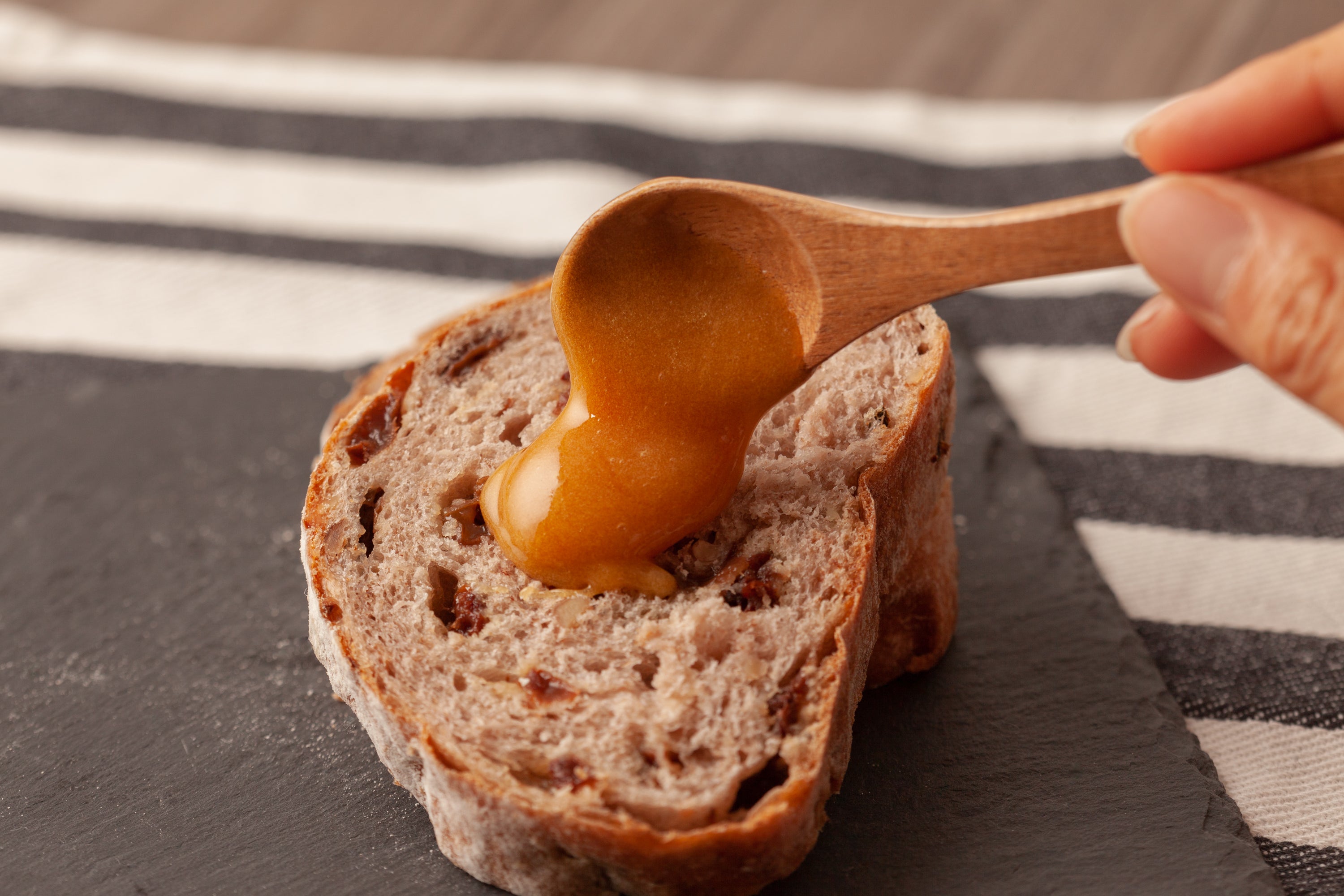Manuka Honey FAQ
About Manuka Honey
What kind of honey is manuka honey?
Manuka honey is honey made from the nectar of the flowers of the Manuka tree, which is native to New Zealand.

Known as the "healing tree" by the Maori people, the indigenous people of New Zealand, it has been loved as a panacea .
Recently, it has received high attention in the health field, such as being certified by the Food and Drug Administration (FDA) in the United States.
Why is it more expensive than regular honey?
Ordinary honey is generally made up of several types of nectar. You can collect some honey during the year. Manuka honey, on the other hand, is made exclusively from the nectar of the Manuka flower. Manuka blooms only for about 4 to 6 weeks in each region of New Zealand, and the time and period during which nectar can be harvested is limited.
Manuka honey is a rare honey with limited locations and harvesting times .
In addition, Honey Fusion Manuka Honey is honey taken from Manuka grown in the mineral-rich volcanic soils of New Zealand's North Island. It has a smooth and luxurious taste.
Contains MGO, an antibacterial ingredient not found in ordinary honey
Many studies have shown that manuka honey has 8 times more antibacterial activity than regular honey.
Manuka honey also contains methylglyoxal (MGO), which is an antibacterial ingredient called hydrogen peroxide.
This MGO has been shown to act specifically against malignant cells in the body.
In addition, it reaches the intestines alive "without losing stomach acid" and fights bad bacteria in the intestines.
In this age of growing interest in health. I want to be a little bit more resistant! and manuka honey.
About MGO
Compared to regular honey, which is harvested nearly 2 million tons annually, manuka honey yields only about 2,800 tons, which is less than 1/600 of that. Manuka honey is such a precious commodity, but that's not the only reason why it's so expensive. As much as it is touted as a panacea, the effects of manuka honey are enormous.
Prevention of colds and infectious diseases
Manuka honey is said to have the effect of suppressing the reproduction of viruses and pathogens, and is effective in preventing colds and infectious diseases. In a 2010 survey, it was found to improve coughs faster than cough medicine, and it is also effective for sore throats.
Improvement of injuries and stomatitis
Manuka honey is best known for its antibacterial, anti-inflammatory and antioxidant properties, and for its wound healing properties. Its intense healing effect is known to be great on abrasions, mouth sores, and even post-surgical eyelid scars.
Good for your gut
Manuka honey survives stomach acid and reaches your gut alive. It suppresses bad bacteria such as Helicobacter pylori, and activates good bacteria, and is said to suppress the growth of salmonella and E. coli, so it is effective in regulating the intestinal environment.
MGO figures
The numbers on Manuka honey (250+, 353+, etc. for our honey) represent the concentration of MGO contained in the honey. 50+ means more than 50 milligrams of MGO per kilogram, and 500+ means more than 500 milligrams of MGO per kilogram. The usage also changes depending on the concentration of MGO.
| MGONumeric | efficacy | Main usage |
| 30+ | rarely seen |
sweetener, etc. |
| 100+ | 20 times more than regular honey, slightly less than regular Manuka honey |
Daily health and immune support |
| 250+ | Moderate |
Improves immunity, prevents colds, cares for the skin, and prepares the intestinal environment. everyday super supplement |
| 350+ | High |
In addition to the effects above, honey with this level of MGO have strong antibacterial properties and is effective against bacteria that are resistant to antibiotics. It is effective enough to be used not only for daily use, but also for when you are not feeling well. |
| 500+ to 1000+ | Highest |
Medical grade. It is sometimes used in British hospitals to treat wounds and burns. |
Our manuka honey is effective in supporting your daily health and preventing and improving your health.
About expiration date
By the Food Sanitation Act, every edible product must come with a best before date.
These best before dates are carefully assessed to ensure their validity. If an item is deemed to be best up to 1 year after manufacturing, the item is monitored and tested over 14 months. Typically, honey is said to be best 2 to 5years after manufacturing.
However, it is important to note that these dates are not expiration dates.
In fact, honey is widely known to be an effective emergency-food. This is because, despite the label, honey generally does not spoil.
The low moisture and high sugar content in honey makes it impossible for bacteria to survive if stored properly.
Because of its high antibacterial properties, it is said that honey was used as an embalming agent in Ancient Egypt.Indeed, when historians discovered 3000 year old honey from an Egyptian tomb in 2005, it was deemed to be in perfectly edible condition!
The same applies to the jar of Mānuka honey in your pantry. With proper storage (that is, sealed and without adding any moisture), it should be just fine to eat, regardless of the label.

